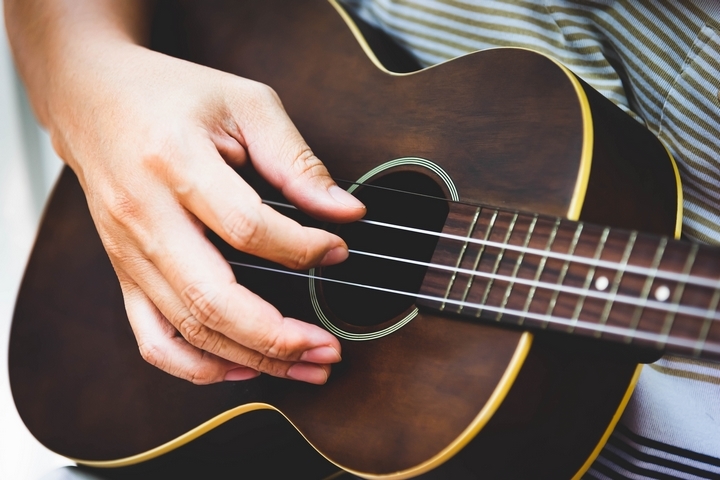
Do you play acoustic guitar, or are you considering taking the instrument? A guitar is a great instrument that can be part of a band or stand alone as a solo instrument, and it is versatile enough to be used in almost every genre of music.
If you want to buy a guitar, practice is the path towards proficiency. Along the way, you want your investment to last, so you must take good care of it so it’s ready to be the canvas for your creative talent.
Do you know how to properly maintain your guitar? Here are seven acoustic guitar care tips that you can adopt.
Tip #1: Have Clean Hands
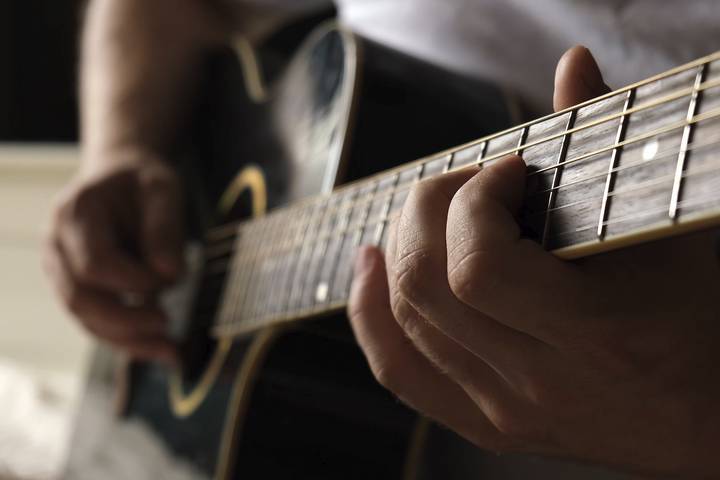
The journey to preserving your acoustic guitar begins with the part of your body that makes the most contact with it. You use your hands to handle the instrument, strum, and pluck the string during your session. This shows how to play a guitar, but what is in your hand can easily transfer to the instrument.
Make a habit of washing your hands before playing. This will remove any dirt and debris you may have picked up and give you a clean slate to perform your music.
Tip #2: Maintain the Finish
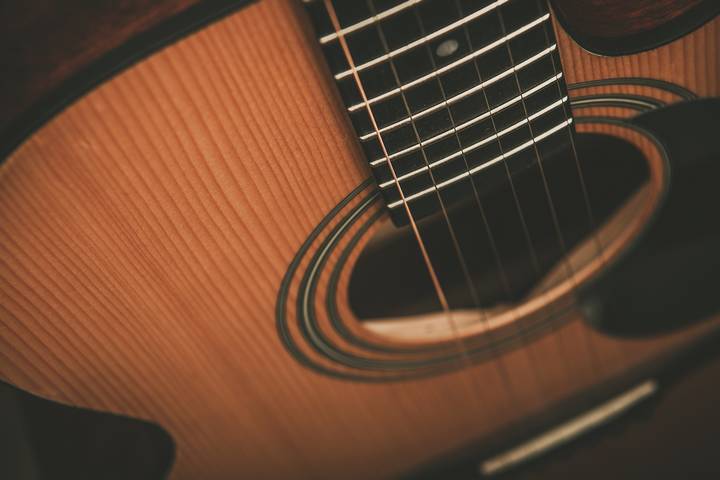
High-quality guitars use a classic finish of old-school nitrocellulose lacquer. This is usually on vintage guitars from the golden era, and if yours is blessed to have it, you want to maintain it. Any guitar can benefit from this finish, so if your old guitar is showing its wear, you can strip it down and reapply the nitro look.
This is a tedious process, but the effort is worth it, so take it on yourself or get a professional to refinish your guitar. It is said that nitro allows the wood to breathe and creates a more open sound and greater sustain. This is an acoustic guitar pro tip, but one you will be very happy with.
Tip #3: Wipe Off the Strings
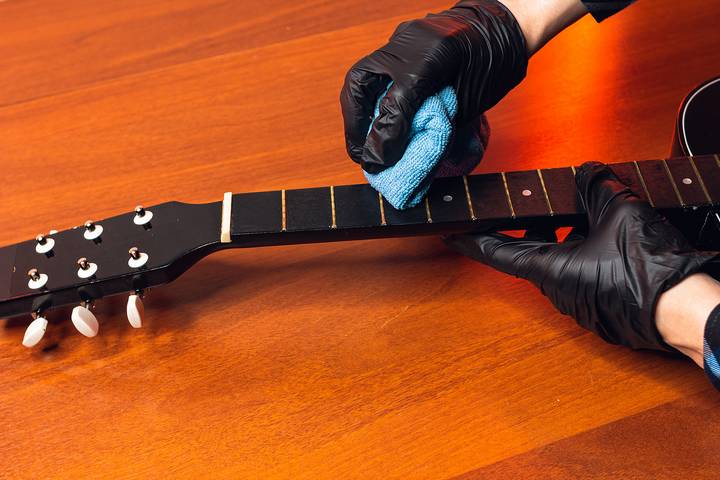
The next tip for taking care of your guitar is to clean off the strings after you finish playing. Even with clean hands, you have natural oils and sweat that transfer to the strings each time you play.
Over time, strings get corroded and rust, making them wear faster and look dull. Use a micro fibre cloth to wipe them down after your session to maintain their lifespan and appearance.
Tip #4: Change Out the Strings Regularly
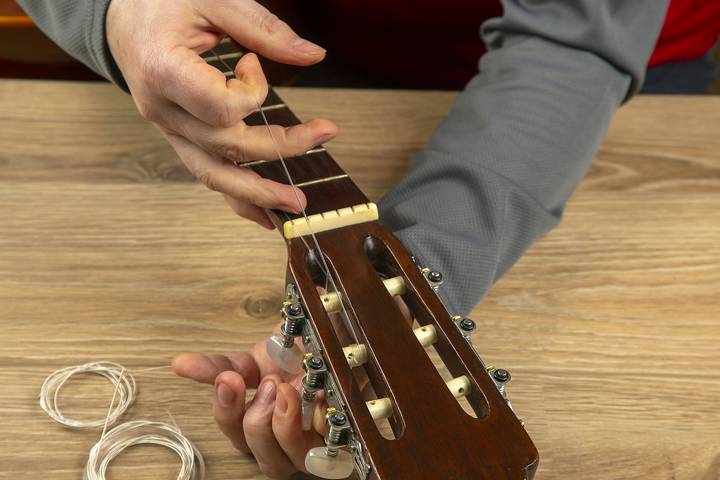
New strings give your guitar a bright, crisp sound; most players can tell the difference between new and old strings. Not only do old strings affect the sound, but they also get dirty, which can transfer to the instrument’s body.
How often should you change out your strings? It depends on several factors like:
- Style of playing
- Type of strings you use
- How often do you play
- How clean you keep them
A regular player should get new strings every six months or when you notice a drop in sound and performance. Remember, professionals change out their strings weekly or before each recording session.
Tip #5: Clean Your Guitar Body
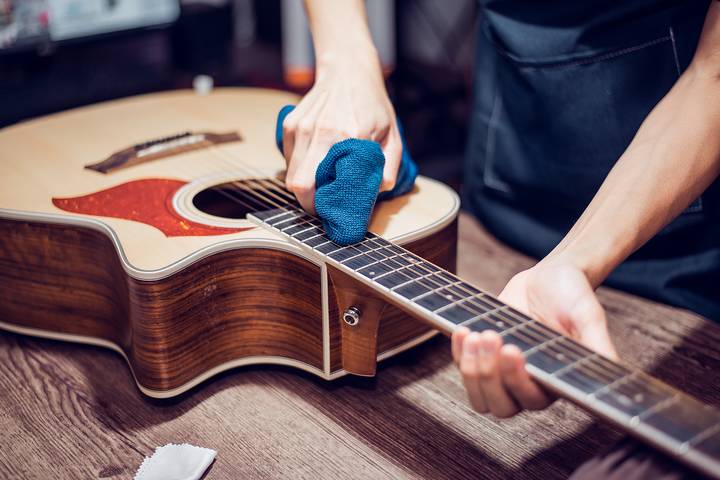
The body of your guitar should also be cleaned regularly to maintain its appearance and durability. Wipe down the fretboard and use a conditioner oil to prevent drying. You can polish the rest of your guitar with a good cleaning solution or guitar polish so the oils and fingerprints don’t do any damage or wear. A micro fibre cloth works best so you don’t scratch the finish.
Tip #6: Store Your Guitar In Its Case
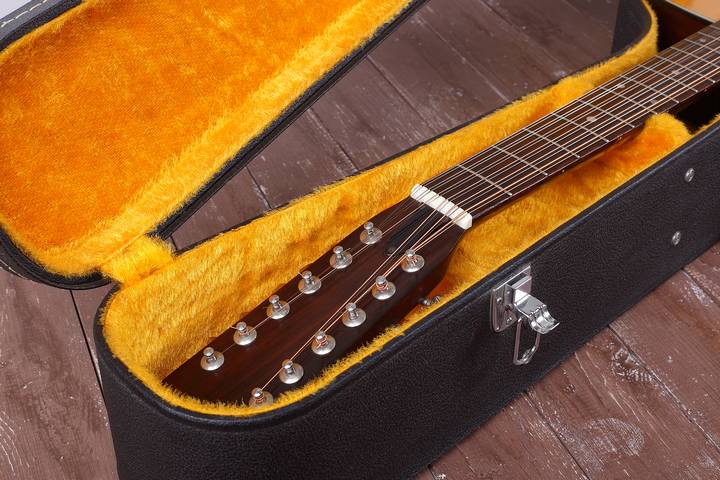
Walking into a room and seeing a few guitars on the wall or upright on a stand in the corner looks cool. This may add to the decor, but it can dramatically decrease the life of your instrument.
Sunlight damages and weakens the structural integrity of the guitar. The same goes for temperature and humidity in a room. Any dust and debris floating around can make contact and accumulate on the guitar, so you want to avoid all this by putting it away when not in use. Keep your guitar safely in its case and a cool, dry area for best practices.
A hard case is much better than a soft one, so make the investment and take care of your axe. If you are storing your instrument long term, loosen the strings so there is no tension on it for its hibernation.
Tip #7: Play It Often
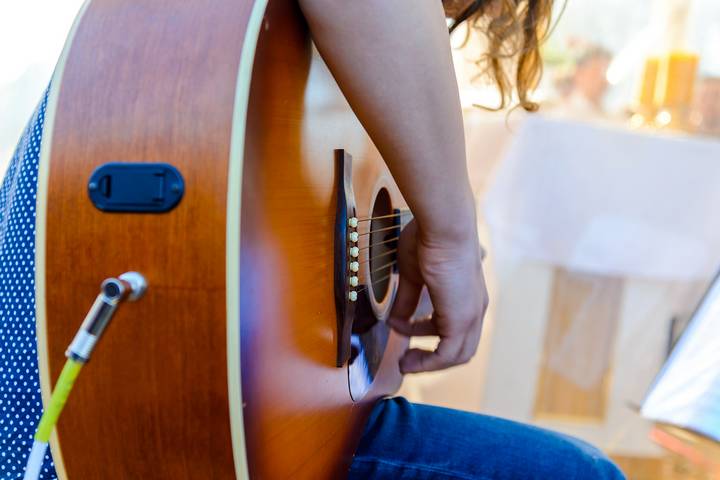
This last tip may be the best because an instrument not played tends to be neglected. You invested in your guitar and probably love to play it, so dedicate some time to playing and enjoy your artistic experience.
Constant playing will help you maintain it because you want peak performance and a good-looking instrument. You will find that the more you play, the better you care for your guitar because you will know what it needs and when.
This is how to take care of your acoustic guitar. Use these seven tips as a way to care for your instrument and connect deeper with the sound and feel of the instrument. And most of all, enjoy your guitar in all its glory.
